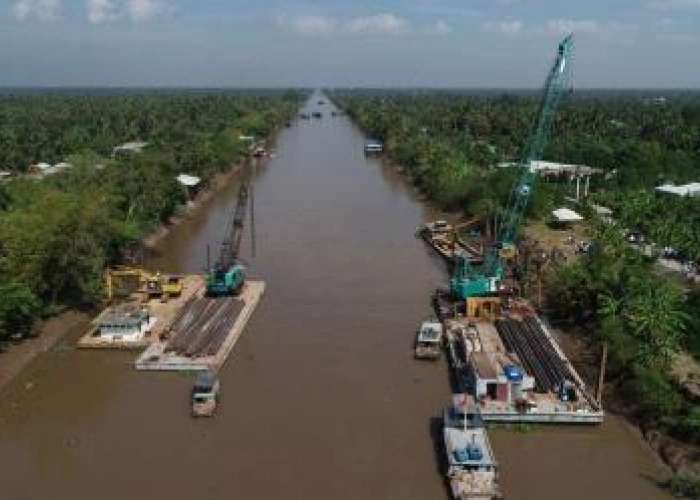Strategic advice to the Vietnamese Water Resources Institute regarding Water Retention Measures in the Mekong Delta

Adapted from the project website
In larger parts of the Mekong Delta in Viet Nam the water supply for agricultural and domestic use is threatened by salinity intrusion and water fresh water shortage. The drought and saline water intrusion in 2016 and again 2020 have been serious wake-up calls for the region. To address the water shortage problems, systematic development of water storage solutions will be important besides agricultural transformation to salinity tolerant crops, increasing the water use efficiency and development.
The Water Resources Institute (WRI) with is part of the Ministry of Natural Resources and Environment (MONRE) is therefore implementing a project to substantially deepen the understanding of the potential of water storage in the delta. The projects aims to provide a way forward towards systematic and situation-specific implementation of various types of water storage solutions at different scale levels. Water storage will need to be considered in the wider context of establishing a more sustainable and robust water management system in the Delta that serves the water quantity and quality requirements of agricultural, domestic and industrial water users. Governance issues such as policies, mandates, regulations and coordinated actions for water storage play a key role.
Royal HaskoningDHV has been contracted by RVO, through the Partners for Water programme, to support WRI with the implementation of the abovementioned project in the period 2020-2021. The RVO-funded project has provided technical advice, and on-the-job and formal training. It also directly contributed to the development of research tools like a well-calibrated water management model for the entire Mekong Delta. WRI has also been supported with the use of remote sensing image processing for land use mapping, identification of cropping patterns and areas suitable for water storage.